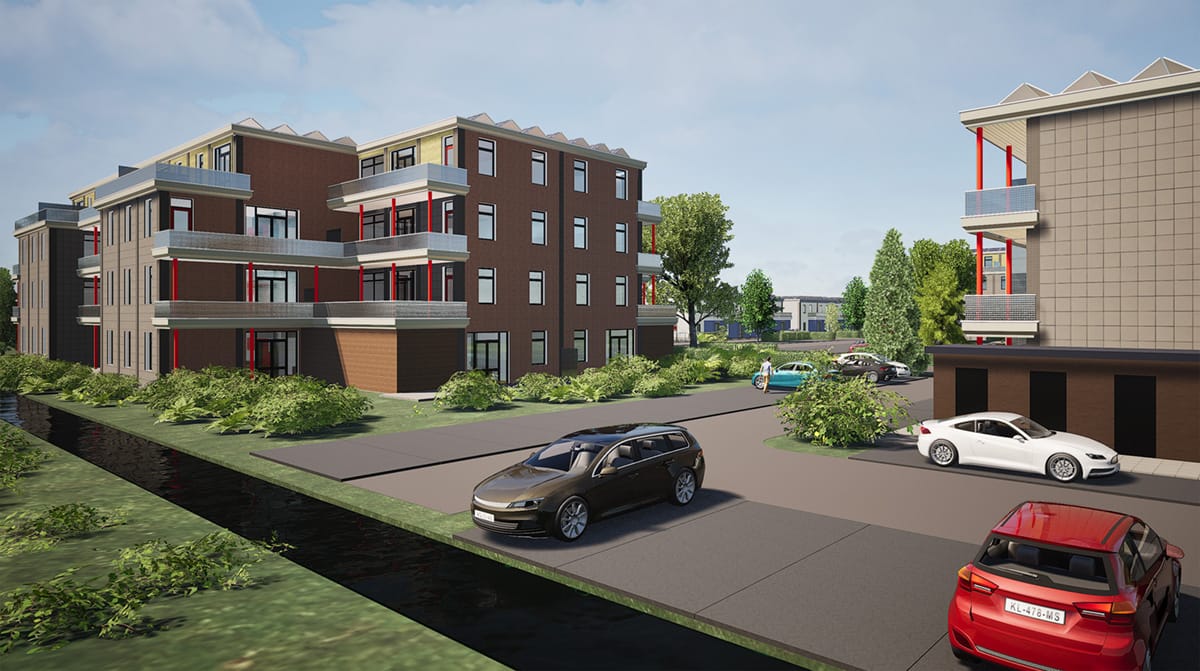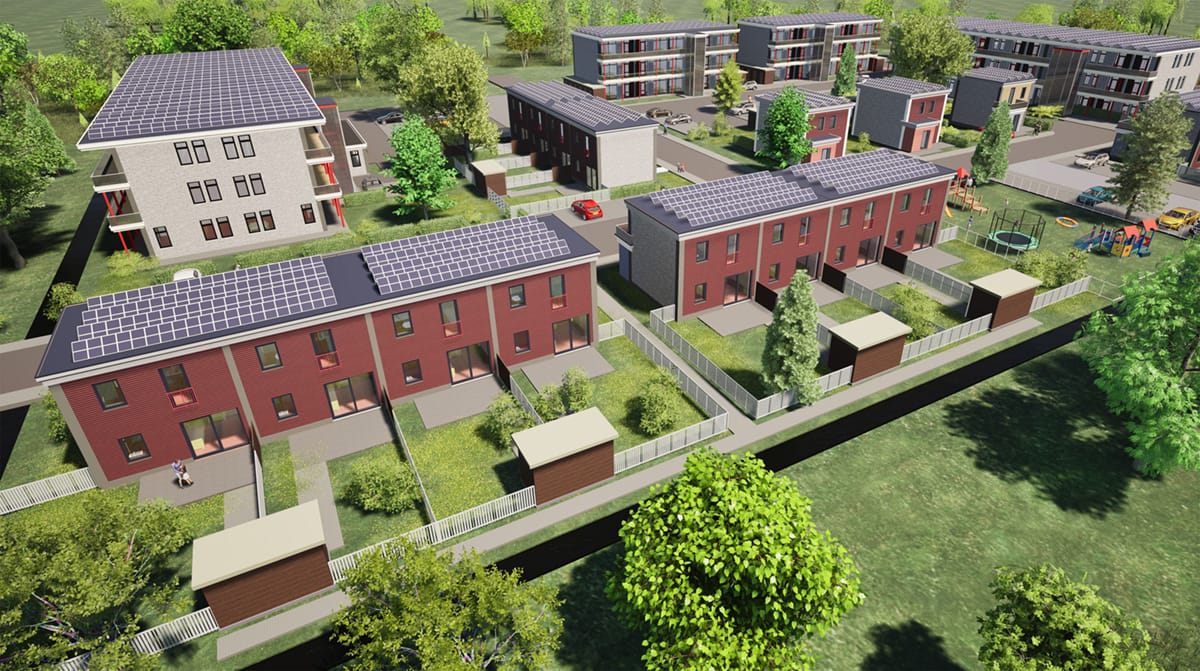True Modular Building Seeks to Revolutionize Housing. It’s Next Stop: MBI’s World of Modular Europe
True Modular Building (TMB) specializes in crafting attainable, eco-friendly, and comfortable build-to-rent (BTR) housing with modern designs and customizable features, ensuring that residents feel at home both today and tomorrow. Their core belief centers around sustainable smart hybrid construction, where they use raw materials sparingly and leverage their distinct attributes like strength and adaptability to create residential homes.
Carel van Duuren, founder and CEO at TMB and speaker at the upcoming World of Modular Europe in Brussels, Belgium, has a long history in the building industry.
“True Modular Building is a spin-off and evolution of my previous companies and expertise in volumetric and modular manufacturing,” says van Duuren. “With the companies Kessel Rental and NxtGen Smart Modular Building, I started with developing kitchens for universities, businesses, conventions and events. This evolved into dismountable container kitchens, which then led me to wonder: How can I make the ideas behind this system more sustainable and repeatable for residential buildings and/or affordable housing?”
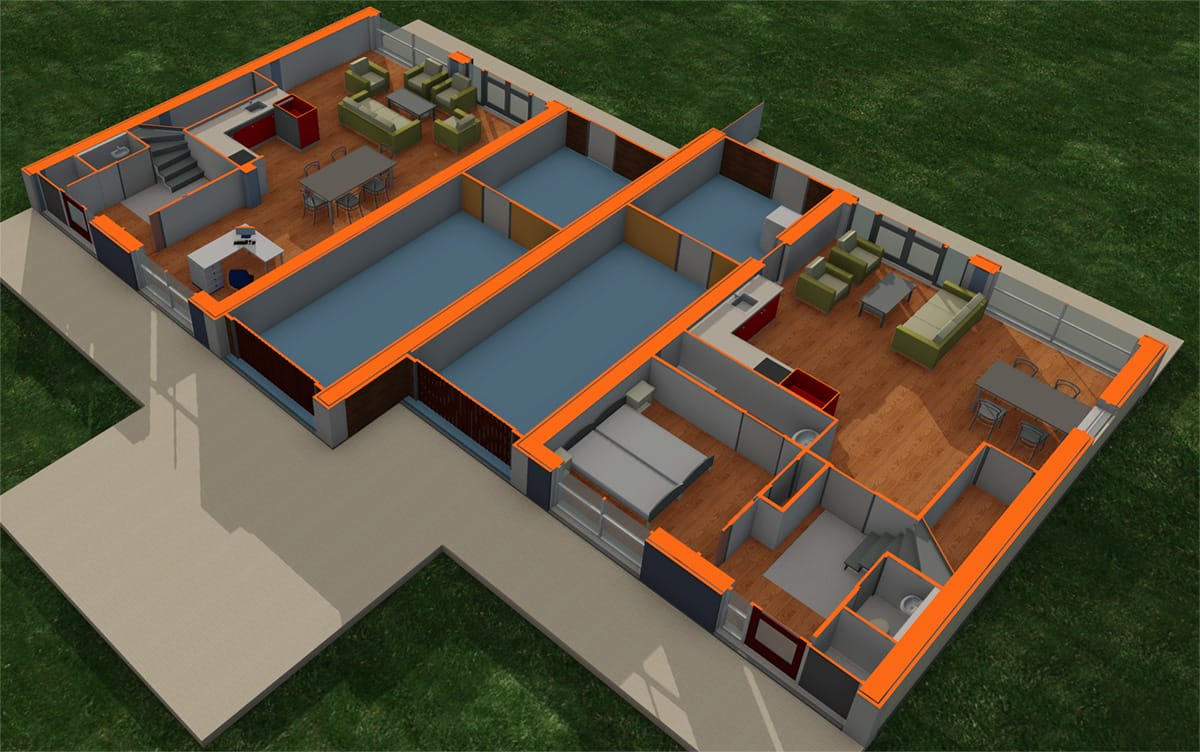
One of True Modular Building's core principles is the use of its proprietary flexible building system, Orange Kit: a configurable platform capable of delivering a diverse range of building types with unique architectures.
Scarce Housing and Rising Carbon Emissions Present Challenges
“I have been following the global housing crisis for a couple of years,” says van Duuren. “The common factor is that a decent home is too expensive and that there are just not enough affordable homes.
“The Dutch housing sector, for example, is experiencing considerable strain by a combination of high demand and a scarcity of affordable homes. This has been a contributing factor to the significant surge in house prices within the Netherlands, placing it among the highest in the European Union.
“Building land in the Netherlands is scarce. The permit procedures are long, there are many regulations and parties involved, and there is a lot of citizen participation (NIMBYism) which delays the process.”
In addition, says van Duuren, the building sector faces multiple operational challenges including escalating raw material costs, labor shortages, and an increasingly critical environmental issue: greenhouse gas emissions.
“Globally, the largest source of greenhouse gas emissions is energy consumption and 40% of this energy is consumed within buildings. An industrialized modular construction approach, noted for its efficiency and potential to reduce emissions will address both the housing and reducing CO2 emissions.”
“The entire construction industry is faced with an urgent challenge of enhancing productivity and sustainability,” says van Duuren. “Conventional on-site construction projects waste significant resources such as time and materials, which negatively affects productivity.

Carel van Duuren, founder of True Modular Building, is an industry veteran with expertise across engineering, developing, patented technology, business development, CEO and CFO experience and starting companies.
In addition, “the building industry faces many problems such as slow speeds, growing labor shortage, skills scarcity, high costs, and the inability to scale and/or reluctancy to use industrial approaches or new materials.”
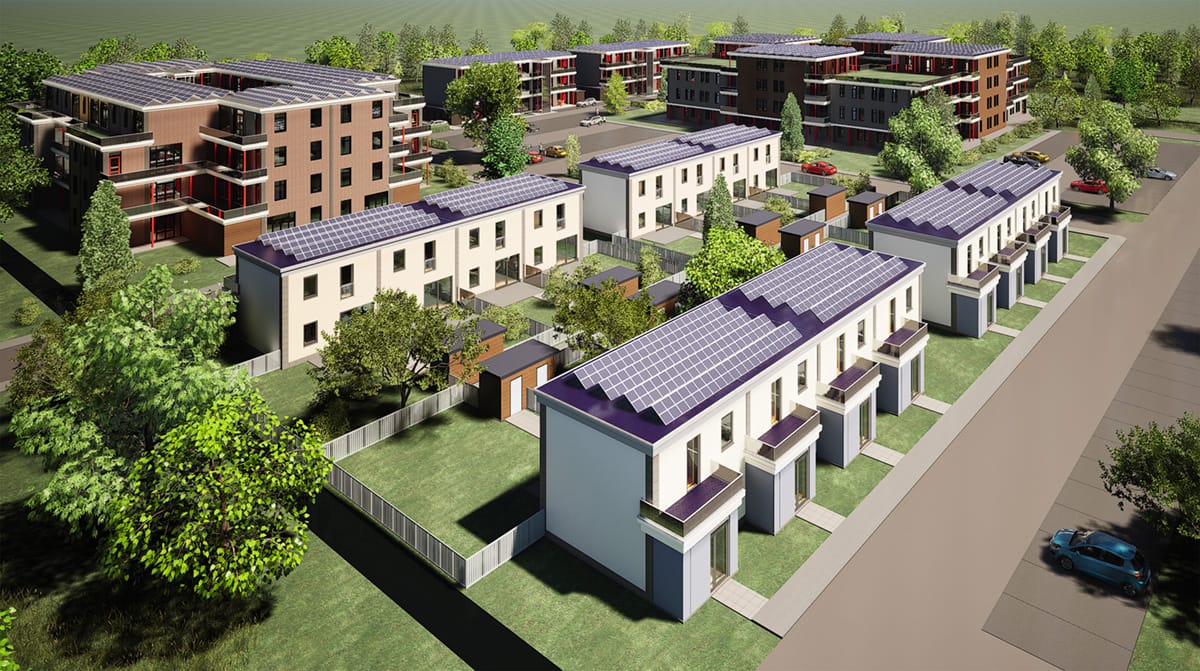
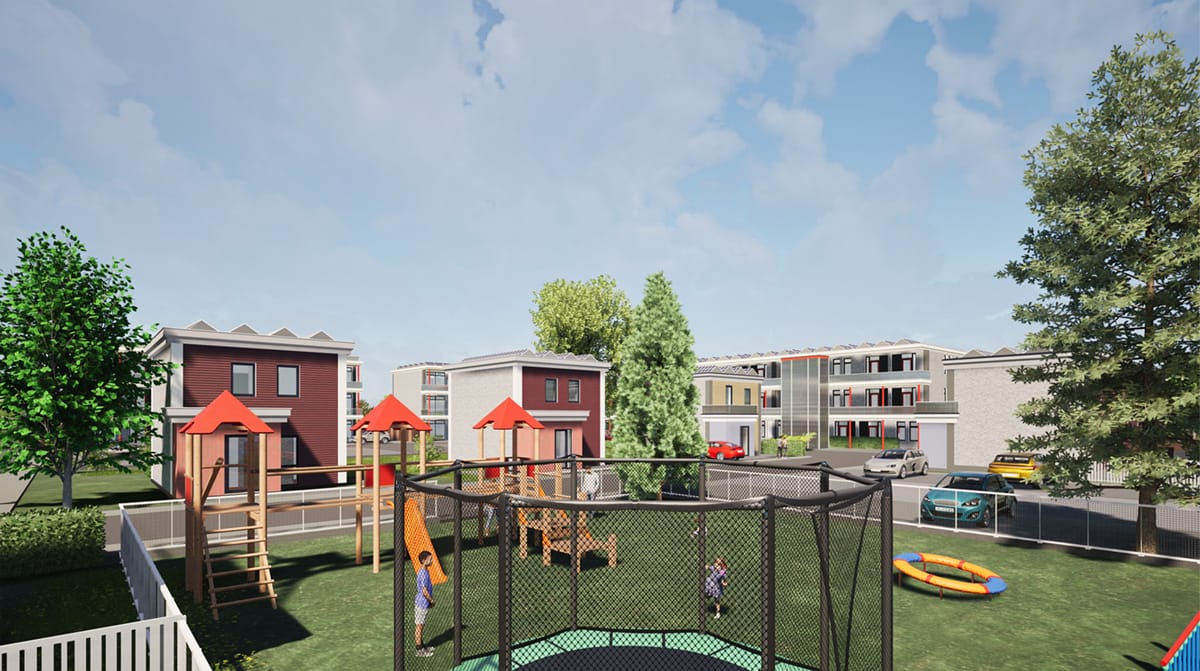
The Potential of Industrialization and MMC
“Industrialized modular construction has the potential to enhance efficiency and productivity in the construction sector,” says van Duuren, “approaching the practices in the manufacturing sector.”
Van Duuren has identified a number of trends that support his thinking. According to him:
- There are a growing number of ‘modular building’ companies and growing confusion about what ‘modular’ actually means.
- There is a higher demand for buildings to be adaptable and future-ready. For example, can offices change into houses and schools into hospitals?
- There is more attention being paid to biobased insulation and biobased construction materials.
- The lack of skilled labor is becoming a critical factor, increasing the need for plug-and-play, easy, fast types of construction.
Related Reading:
World of Modular Europe to Bring Industry Insights, Expertise to Brussels
World of Modular Europe, to be held in Brussels on 1-2 October, will be an event like none other. Featuring speakers, exhibitors, and attendees from across Europe and around the globe, World of Modular Europe will be a world-class forum, offering key insights, best practices, and the opportunity to meet leaders and stakeholders from every corner of industry.
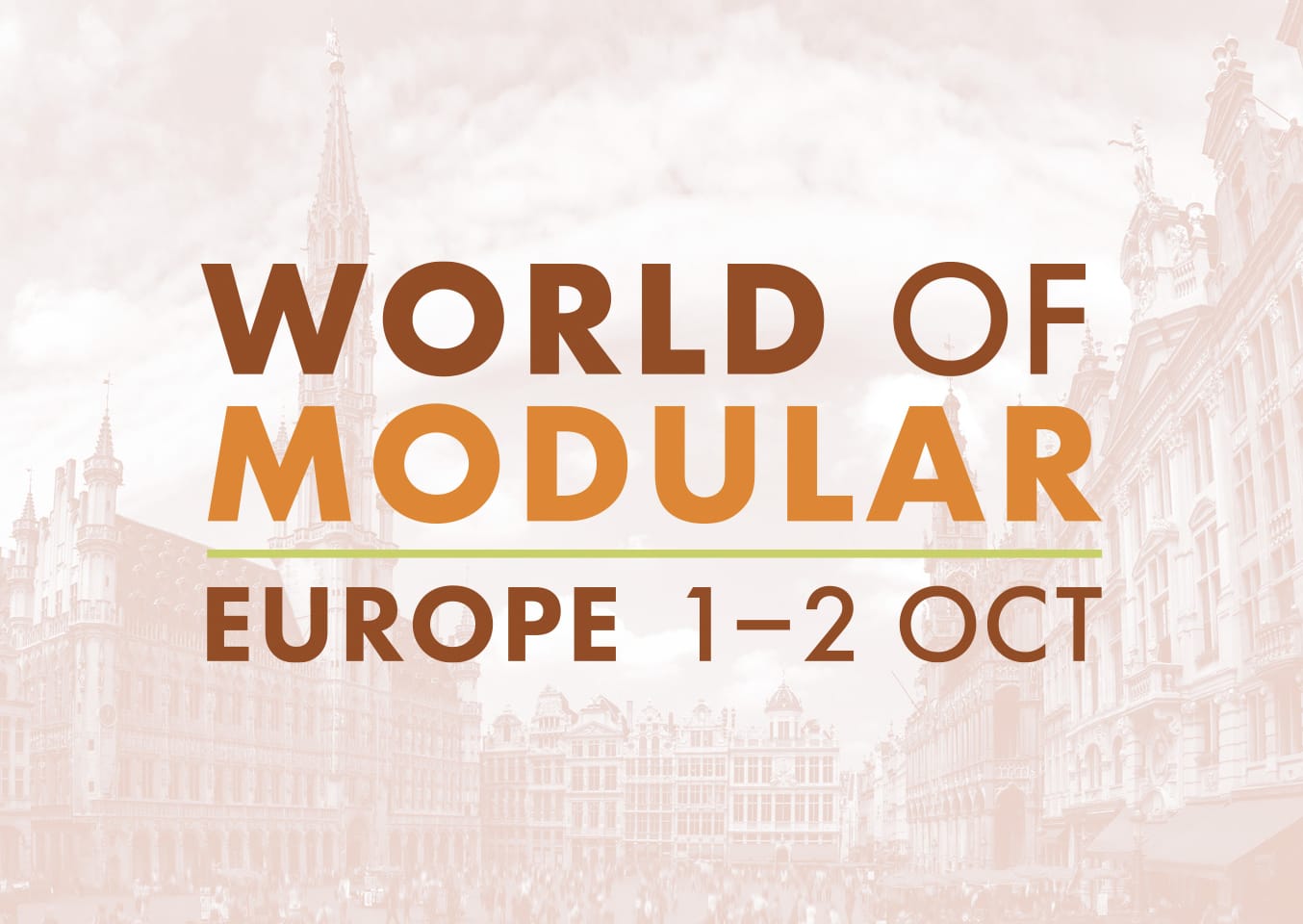
True Modular Buildings’ Approach
“A major stimulus for TMB,” says van Duuren, “is the need to reduce the built environment’s impact on carbon emission and depletion of natural resources through reducing the wasteful consumption of materials and electricity.”
These issues can be addressed, according to van Duuren, with TMB’s approach to building.
“TMB is an innovative company in the construction and housing industry,” says van Duuren. “It specializes in modular construction, which involves production of prefabricated building components off-site and assembling them on-site. TMB's approach to construction (MMC) is rooted in principles of innovation, sustainability, and social responsibility. We focus on developing proprietary construction systems which streamline the building process, minimize waste, and maximize efficiency.”
Simply put, van Duuren’s aim is to change how housing works. “TMB's goal is to revolutionize the way homes are built, making them more accessible, adaptable, and environmentally friendly.”
Building for the Future at World of Modular Europe
Planned for 1-2 October in Brussels and presented by the Modular Building Institute, World of Modular Europe will provide the perfect forum for van Duuren to share what he’s learned—and to hear the ideas of his industry peers.
“I want to share my insights about the development of a componentized building system. I want to explain the importance of creating maximum adaptability and flexibility, and I want to help attendees understand that change is a constant factor—adaptations are necessary during the entire life of the building. And in so doing, I want to share and learn more about how we can make products infinitely repeatable and simple. How can we make sure we, as builders, are contributing to the economy without adding extra waste or using increasingly precious resources?
“I’m looking forward to sharing my experience and knowledge to help people to think differently and to show that small conceptual changes can make big differences.”
See all speakers and presentations for World of Modular Europe and register today.
About the Author: John McMullen, PCM, is the marketing director for the Modular Building Institute. You can reach him directly at mcmullen@modular.org or on LinkedIn.
More From Modular Advantage
AI, Faster Sets, and Automation: The Future of Modular is at World of Modular
While the modular building industry has long known that it can be an effective solution to increase affordable housing, the word is slowly spreading to more mainstream audiences. Three presentations at this year’s World of Modular in Las Vegas hope to provide insight and direction for those seeking a real solution to the crisis.
An Insider’s Guide to the 2025 World of Modular
The Modular Building Institute is bringing its global World of Modular (WOM) event back to Las Vegas, and with it comes some of the industry’s best opportunities for networking, business development, and education. Over the course of the conference’s four days, there will be numerous opportunities for attendees to connect, learn, and leverage event resources to get the most out of the conference.
Affordable Housing Now: The Industry’s Best Bring New Solutions to World of Modular
While the modular building industry has long known that it can be an effective solution to increase affordable housing, the word is slowly spreading to more mainstream audiences. Three presentations at this year’s World of Modular in Las Vegas hope to provide insight and direction for those seeking a real solution to the crisis.
Opportunities for Innovation in Modular Offsite Construction
Modular Offsite Construction has already shattered the myth that it only produces uninspired, box-like designs. Architectural innovations in module geometry, configurations, materials, and products make it possible to create visually stunning buildings without sacrificing functionality or efficiency.
Safe Modular Construction with Aerofilm Air Caster Transport
In collaboration with Aerofilm Systems, Heijmans developed innovative skids using air caster technology for moving modules easily and safely. These pallets are equipped with an auto-flow system, making operation extremely simple.
Miles, Modules, and Memes: Building a Modular Network One Flight at a Time
At the end of the day, social media is just another tool for building connections, and like any other tool, needs to be used skillfully to work properly. Use social media thoughtfully, and it will open doors to real opportunities and relationships you didn’t even see coming.
Falcon Structures: Thinking Inside the Box
Some of Falcon’s latest projects include creating container solutions for New York’s Central Park and an East Coast professional baseball team. More and more, Falcon is shipping out container bathrooms and locker rooms to improve traditionally difficult work environments, like those in oil and gas or construction.
UrbanBloc—From Passion to Industry Leader
UrbanBloc specializes in three main categories or markets – what they call “Phase 0” projects, amenities, and urban infill. Clients are often attracted to shipping containers because from a real estate perspective they are considered an asset. Having the flexibility to move and transport these assets allows owners to respond to different circumstances in a fluid manner that they can’t get with standard construction.
The Hospitality Game-Changer
“Hospitality is about more than just providing a service – it’s about delivering an experience,” says Anthony Halsch, CEO of ROXBOX. “And that’s where containers thrive. They allow us to create spaces that are unique, efficient, and sustainable.”
Container Conversions Counts on Simplicity to Provide Critical Solutions
Container Conversions has fabricated and developed thousands of containers for varied projects, including rental refrigeration options, offices, kitchens, temporary workplace housing, and mobile health clinics.

